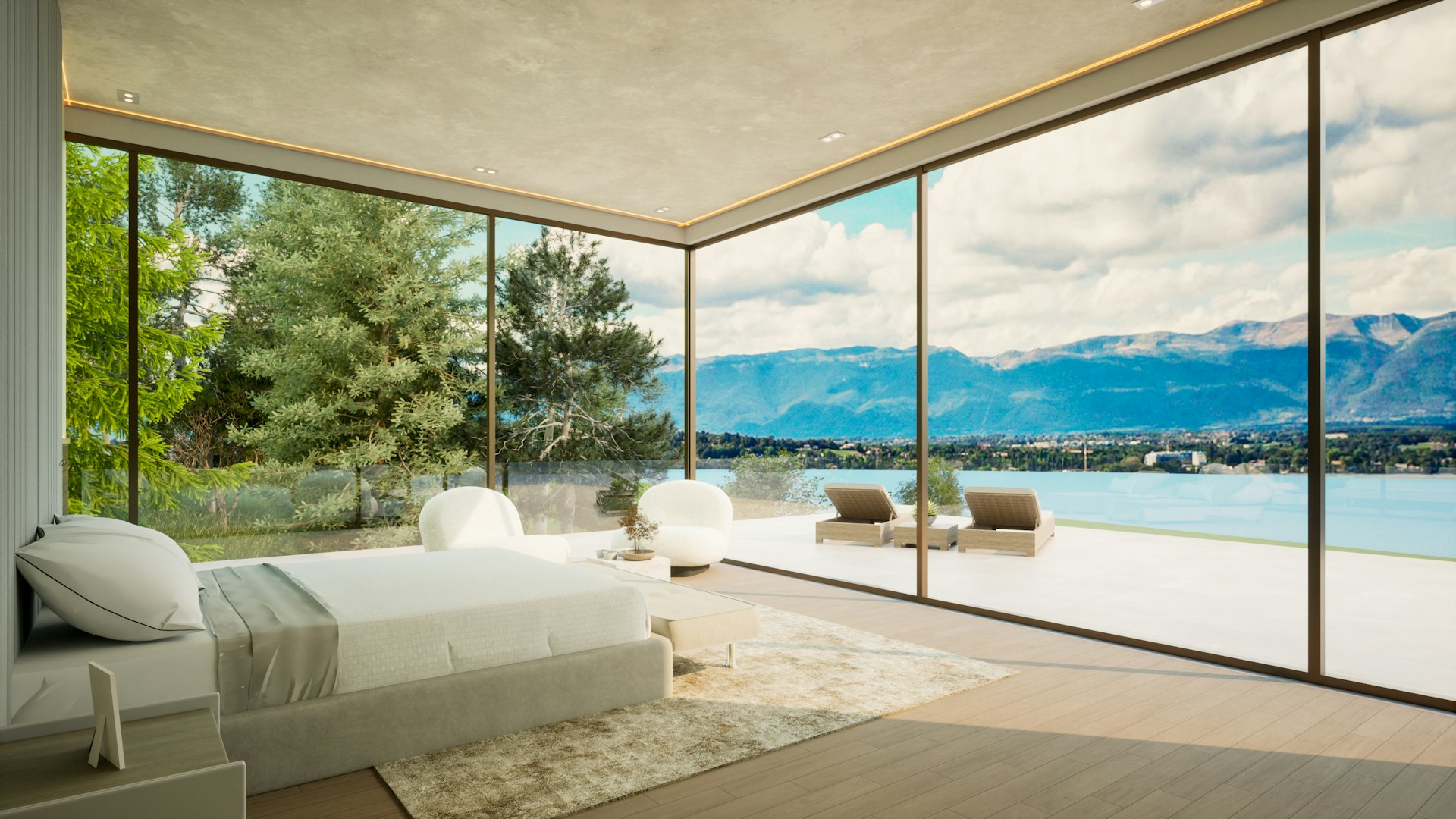Transform Your Space: Inspiring Ideas for Setting Up the Ultimate Home Theater

Photo by Josh Chiodo on Unsplash
Introduction: The Magic of a Personalized Home Theater
Envision stepping into your own dedicated entertainment space, where stunning visuals, immersive sound, and tailored design converge to deliver an authentic cinematic experience. Whether you’re a film enthusiast, a gamer, or simply looking for a luxurious spot for family gatherings, a thoughtfully designed home theater transforms ordinary evenings into memorable adventures. This guide provides inspiration and practical steps for building an exceptional home theater, covering essential elements, design strategies, and actionable pathways for every budget and skill level.
Planning Your Home Theater: Measure, Visualize, and Design
Every successful home theater setup begins with a clear plan. Start by measuring the area you wish to use, whether it’s a spare room, basement, attic, or a section of your living space. Create a simple diagram on graph paper or use an online planner like the Audio Advice Home Theater Designerâ„¢ to experiment with layout options and visualize your concept. [1] Consider the following foundational questions:
- What will serve as your display: a large TV or a projector and screen?
- How many speakers will you use, and where will you position them?
- What seating arrangement best fits your space and enhances comfort?
- What is your available budget for equipment and design?
As your plans solidify, reevaluate your diagram and note any changes. Flexibility is key: start simple and scale up as your needs and resources evolve. [2]
Choosing Your Display: Projector vs. Television
The heart of any home theater is its visual display. Modern setups typically use either a high-definition television or a projector with a dedicated screen. Projectors can bring the true cinema experience home, offering much larger image sizes for the same price as smaller TVs. For best results, choose a projector with at least 2,000 lumens to ensure vivid images even in rooms with ambient light. [1] Consider advanced features like electronic keystone correction to adjust the image angle as needed.
When selecting a display, prioritize resolution (HD, 4K, or 8K) and display technology (LCD, DLP, Plasma, or LCoS). Higher resolutions offer clearer and more detailed images, while different technologies impact color, contrast, and brightness. [3]
Step-by-step guidance:
- Measure your room to determine maximum screen size.
- Assess ambient light and decide between projector or TV.
- Research models that fit your resolution and brightness needs.
- Consult manufacturer websites for reviews and technical specifications.
Alternatives: If space or budget is limited, consider smaller TVs with high pixel density or portable projectors for flexible setups.
Sound System Selection: Surround Sound for Immersive Audio
Audio is what truly sets a home theater apart. Surround sound setups range from simple stereo pairs to complex multi-speaker arrays that envelop viewers in rich, dynamic sound. Start with a soundbar for crisp dialogue, then gradually add a subwoofer for impactful bass and rear speakers for ambient effects. [5] Dolby’s official speaker placement guide is a valuable resource for optimal configurations: search for ‘Dolby Atmos Installation Guidelines’ on Dolby’s official site. [2]
Step-by-step guidance:
- Determine the number of speakers suited to your room size.
- Plan speaker placement based on manufacturer recommendations and room layout.
- Choose between in-wall, on-wall, or stand-mounted speakers.
- Install and test each component, making adjustments for balance and clarity.
Alternatives: For temporary arrangements, use portable or wireless speakers that can be moved as needed. [1]
Comfort and Style: Seating, Acoustics, and Aesthetics
Comfortable seating and thoughtful room design are essential for an enjoyable home theater experience. Opt for seats that align with screen height and provide unobstructed views. [3] Arrange seats in rows or semi-circular patterns to maximize viewing angles and audio impact.
Room acoustics matter just as much as audio equipment. Soundproofing and acoustic treatments (like wall panels, carpets, and heavy curtains) can significantly reduce unwanted noise and echoes. Use dimmable lighting or blackout shades to control ambiance and enhance immersion.
Personalize your space with thematic décor: classic cinema motifs, modern minimalism, or a favorite franchise. Color choices, wall art, and lighting effects help set the mood and make your theater unique.
Step-by-step guidance:
- Select seating that fits your room’s style and dimensions.
- Test different arrangements before finalizing placement.
- Research acoustic panels and installation methods.
- Experiment with lighting options, from smart bulbs to LED strips.
Alternatives: For budget-conscious setups, use comfortable armchairs and portable lighting.
Technical Integration and Smart Features
Integrate smart technology for greater convenience. Modern home theaters can be controlled through mobile apps or voice assistants, managing lighting, sound, and even display settings. Consider universal remotes or smart home hubs for seamless operations.

Photo by Valeria Istrate on Unsplash
Step-by-step guidance:
- Research compatible smart devices and platforms.
- Set up automation routines for movie nights: dim lights, adjust sound, and power on equipment with a single command.
- Ensure secure network connections for streaming and remote control.
Alternatives: Manual controls and basic remotes remain reliable options for straightforward setups.
Overcoming Challenges: Budget, Space, and Installation
Common hurdles include limited budget, space constraints, and technical know-how. Many organizations provide detailed guides and online forums for troubleshooting and inspiration. If professional installation is needed, search for certified home theater installers or consult local electronics retailers for referrals.
For DIY approaches, begin with entry-level equipment and upgrade over time. Modular systems allow for gradual expansion without replacing core components.
Step-by-step guidance:
- Set a clear budget and prioritize essential elements.
- Research second-hand or refurbished equipment for savings.
- Consult online communities for advice and creative problem-solving.
- Document each installation step to simplify future upgrades.
Alternatives: Rent equipment for special occasions or test setups before investing in permanent fixtures.
Accessing Resources and Inspiration
To gather more inspiration and technical guidance, explore online blogs, manufacturer resources, and design tools. The Octane Seating blog offers comprehensive setup guides, while Arendal Sound provides beginner-friendly advice for equipment selection and multi-purpose room usage. [3]
If you need hands-on support, you can contact local audio-visual retailers, search for “home theater installation services” in your region, or visit official manufacturer websites for product details and customer service hotlines. Audio Advice’s design tool is a reliable starting point for layout planning and equipment selection. [4]
Conclusion: Bringing Your Vision to Life
Creating a home theater is a journey that blends technology and creativity. Each decision, from screen size to seating style, shapes your perfect entertainment space. With measured planning, informed choices, and a touch of personal flair, you can transform any room into a cinematic haven. Begin your project today by exploring professional guides, consulting experts, and experimenting with your own designs. The possibilities are as limitless as your imagination.
References
- Octane Seating (2020). Complete Home Theater Setup Guide for Movie Buffs.
- AVS Forum (2023). Want to build a home theater? Little experience?
- Arendal Sound (2024). Understanding Home Theaters: A Beginner’s Guide.
- Audio Advice (2024). Home Theater Central – Design Tool and Resources.
- Sonos (2024). Beginner’s Guide to Surround Sound Setups.
MORE FROM mumsearch.com













